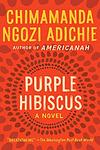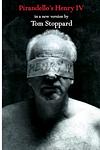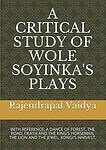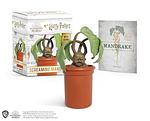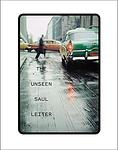The Greatest Nigerian, Italian "Drama" Books of All Time
Click to learn how this list is calculated.
This list represents a comprehensive and trusted collection of the greatest books. Developed through a specialized algorithm, it brings together 300 'best of' book lists to form a definitive guide to the world's most acclaimed books. For those interested in how these books are chosen, additional details can be found on the rankings page.
Genres
Drama is a genre of literature that typically deals with serious and emotional themes, often exploring the complexities of human relationships and the struggles individuals face in their lives. These books often feature intense character development and intricate plotlines, delving into the depths of human experience and the challenges of navigating the world around us. From family dramas to political intrigue, the drama genre encompasses a wide range of stories that aim to captivate readers with their raw and powerful storytelling.
Countries
Date Range
Reading Statistics
Click the button below to see how many of these books you've read!
Download
If you're interested in downloading this list as a CSV file for use in a spreadsheet application, you can easily do so by clicking the button below. Please note that to ensure a manageable file size and faster download, the CSV will include details for only the first 500 books.
Download-
1. Six Characters in Search of an Author by Luigi Pirandello
In this metatheatrical play, six characters come to life and demand that a theater director tell their tragic story, which was left incomplete by their author. As the director and his actors interact with these characters, the boundaries between fiction and reality blur, leading to a philosophical exploration of the nature of human identity, the reliability of art, and the unreliability of perception. The characters' story, involving a complex web of familial relationships, adultery, and suicide, further complicates the narrative, challenging the audience's understanding of truth and illusion.
-
2. Half of a Yellow Sun by Chimamanda Ngozi Adichie
The novel is set in Nigeria during the Biafran War, exploring the impact of the conflict on the lives of its characters. The story is told from the perspective of three characters: a young houseboy, a radical university professor, and the professor's wealthy lover. The narrative delves into themes of love, race, and war, offering a vivid depiction of the horrors of conflict and the resilience of the human spirit.
-
3. My Brilliant Friend by Elena Ferrante
This novel tells the story of two friends, Elena and Lila, growing up in a poor neighborhood in Naples, Italy in the 1950s. Their intense, complicated friendship is marked by competition, mutual respect, and deep affection. As they navigate the challenges of adolescence, including family drama, academic struggles, and romantic entanglements, their bond is tested and transformed. The narrative explores themes of female friendship, social class, education, and the struggle for personal autonomy in a patriarchal society.
-
4. Second-class Citizen by Buchi Emecheta
"Second-Class Citizen" is a poignant narrative about a young Nigerian woman, Adah, who dreams of getting an education and moving to the United Kingdom. Despite cultural and societal obstacles, Adah manages to achieve her dream but is met with more hardship as she faces racial discrimination, an abusive marriage, and the struggle of raising five children in a foreign land. Through her resilience, she continues to strive for a better life, depicting the struggles of immigrants and the strength of women.
-
5. The Time of Indifference by Alberto Moravia
This novel explores the dynamics of an upper-middle-class Italian family facing financial ruin. The story focuses on the emotional indifference and moral decay among family members, as they engage in affairs and manipulative behavior to secure their social status. As the family's fortunes dwindle, their lack of empathy and moral integrity becomes increasingly evident, offering a critique of bourgeois values and the corrosive effects of apathy and materialism.
-
6. Silk by Alessandro Baricco
"Silk" is a historical fiction novel that tells the story of a 19th-century French silkworm merchant who travels to Japan for business. During his travels, he becomes enamored with a mysterious woman. His unrequited love for her haunts him for the rest of his life, even as he returns to France and continues his life there. The novel explores themes of love, longing, and the profound impact that brief encounters can have on one's life.
-
7. The Joys Of Motherhood by Buchi Emecheta
"The Joys of Motherhood" is a poignant and powerful novel that explores the life of Nnu Ego, a Nigerian woman who struggles to find fulfillment and happiness in the traditional role of motherhood. Set against the backdrop of colonial Nigeria, the story delves into themes of gender inequality, cultural expectations, and the sacrifices mothers make for their children. Through Nnu Ego's experiences, the author offers a thought-provoking examination of the complexities and contradictions of motherhood in a rapidly changing society.
-
8. Bébo's Girl by Carlo Cassola
"Bébo's Girl" is a poignant tale set in the backdrop of World War II, focusing on the relationship between a young partisan, Bebo, and Mara, a simple and innocent country girl. Their love story unfolds amidst the grim realities of war, where Bebo's commitment to his cause often conflicts with the peaceful life he desires with Mara. The narrative explores themes of love, sacrifice, and the devastating impact of war on personal lives, ultimately leading to a tragic end.
-
9. Purple Hibiscus by Chimamanda Ngozi Adichie
"Purple Hibiscus" follows the story of a 15-year-old Nigerian girl, Kambili, and her older brother Jaja, who live a privileged life in Enugu. However, their father is a religious fanatic and a domestic tyrant. The siblings are sent to their Aunty Ifeoma's home, a university professor, who provides them a taste of freedom and shows them a different way of life outside their father's oppressive rule. The novel explores themes of colonialism, religious fanaticism, and the post-colonial political situation in Nigeria.
-
10. The Neapolitan Novels by Elena Ferrante
"The Neapolitan Novels" is a four-part series that explores the intricate and lifelong friendship between two women from Naples, Italy. The series spans several decades, beginning in the 1950s, and provides a detailed examination of the women's lives, struggles, and the societal pressures they face. The narrative delves into themes of identity, friendship, love, violence, and socio-political changes in post-war Italy. The series is known for its rich character development and vivid portrayal of female friendship.
-
11. The Bride Price by Buchi Emecheta
"The Bride Price" is a novel that explores the life of a young Nigerian girl who, despite her father's disapproval, dreams of furthering her education. After her father's death, she is forced into an arranged marriage due to cultural traditions, but she defies the system and elopes with her lover. However, the consequences of unpaid bride price haunt her, leading to a tragic ending. The book highlights the clash between traditional African values and modern aspirations, the struggles of women in patriarchal societies, and the impact of colonialism on African cultures.
-
12. Death And The King's Horsemen by Wole Soyinka
"Death And The King's Horsemen" is a powerful play set in Nigeria during the colonial era. It explores the clash between traditional African beliefs and the influence of Western culture. The story follows the tragic consequences that unfold when a British colonial officer tries to prevent the ritual suicide of the king's horseman, who is duty-bound to accompany his deceased king to the afterlife. The play delves into themes of cultural identity, the clash of civilizations, and the consequences of interfering with sacred traditions.
-
13. Troubling Love by Elena Ferrante
This novel follows a woman who returns to Naples after her mother's mysterious death, determined to understand the enigmatic life her mother led. As she delves into her mother's past, she uncovers a web of secrets and discovers more about her own identity in the process. The narrative explores themes of mother-daughter relationships, identity, and the power of the past.
-
14. The Stillborn by Zaynab Alkali
"The Stillborn" is a poignant narrative that explores the lives of women in a traditional African society, focusing on their struggles, resilience, and the quest for personal identity. The story delves into the complexities of polygamy, cultural expectations, and the impact of modernity on rural communities. Through the experiences of its female protagonists, the novel highlights the challenges faced by women in their pursuit of education, autonomy, and fulfillment in a male-dominated environment, ultimately offering a critique of the societal norms that stifle their growth and the transformative power of self-awareness and communal support.
-
15. Novecento by Alessandro Baricco
The book is a poignant monologue that tells the story of a gifted pianist born on a transatlantic liner in the early 20th century. Abandoned at birth, he is named after the year of his birth and grows up on the ship, never setting foot on land. His extraordinary talent for piano captivates everyone who hears him play, and his music becomes legendary among travelers and crew alike. The narrative, recounted by a fellow musician and friend, explores themes of belonging, the meaning of home, and the transcendent power of music to connect people across the boundaries of time and space.
-
16. Henry Iv by Luigi Pirandello
In this novel, the protagonist is a man who, after an accident during a historical pageant, comes to believe himself to be the medieval German emperor Henry IV. For twenty years, he lives in a villa with attendants who indulge his delusion. The story delves into themes of madness, reality, and illusion as characters from his past attempt to cure him, leading to a complex examination of the nature of sanity and the role that personal mythologies play in our lives. As the line between the protagonist's delusion and the reality of those around him blurs, the narrative raises profound questions about the nature of identity and the masks people wear in society.
-
17. Accidental Death Of An Anarchist by Dario Fo
In this satirical farce, an eccentric and quick-witted man, referred to as the Maniac, infiltrates a police station where an anarchist railway worker's death is being investigated. The authorities claim the anarchist died by suicide, having jumped out of a window during an interrogation. However, the Maniac cleverly impersonates various officials, manipulates the policemen, and exposes the absurdities and contradictions in their stories, suggesting that the anarchist's death was not an accident but a cover-up of police brutality. The play uses sharp humor and slapstick to critique corruption and the misuse of power within the establishment, ultimately questioning the integrity of the police and the justice system.
-
18. The Servant Of Two Masters by Carlo Goldoni
The play is a classic Italian comedy that revolves around the clever and resourceful Truffaldino, who seeks to serve two different masters simultaneously in the hope of doubling his income. The ensuing plot is a whirlwind of mistaken identities, love triangles, and comedic confusions. As Truffaldino scrambles to keep his dual employment a secret, the characters are entangled in a series of humorous situations involving love-struck young lovers, a feisty soubrette, and a pair of stern fathers. The play culminates in a series of revelations and reconciliations that restore social order and conclude with festive celebrations.
-
19. Naked Masks by Luigi Pirandello
"Naked Masks" is a collection of five plays that delve into the complexities of human identity and the conflict between one's inner self and the roles imposed by society. The plays explore themes of madness, illusion, and existential uncertainty, often through characters who are caught in the tension between appearance and reality. The author uses the metaphor of the mask to represent the personas that individuals adopt in public, while questioning the nature of truth and the possibility of truly understanding oneself or others. The plays challenge audiences to consider the fluidity of identity and the performative aspects of everyday life.
-
20. Women Of Messina by Elio Vittorini
The novel explores the lives of a group of Sicilian villagers who return to their hometown after it was destroyed during World War II. As they rebuild their community amidst the ruins, they form a utopian society based on principles of equality and cooperation. However, their idealism is tested by internal conflicts and external pressures, including the influence of a mysterious woman who arrives in their midst. The narrative delves into themes of social reconstruction, the power of human solidarity, and the challenges of creating a new society while grappling with the scars of the past.
-
21. A Dance Of The Forest by Wole Soyinka
The book is a complex play that delves into the themes of identity, history, and the cyclical nature of human folly. It is set in an African village where the community is preparing for a festival to honor the return of their dead ancestors. As the living interact with the spirits of the past, the play reveals the characters' personal and political failings, reflecting on the post-colonial experience of African nations. Through a blend of myth, ritual, and satire, the narrative challenges the characters—and by extension, the audience—to confront their own complicity in societal issues, questioning the possibility of true progress and self-understanding.
-
22. Casualties by John Pepper Clark
"Casualties" is a collection of poems that explores the themes of violence, war, and the human cost of conflict, particularly focusing on the Nigerian Civil War and its aftermath. The poet delves into the emotional and physical toll on individuals and society, reflecting on the senselessness of violence and the loss of innocence. Through vivid imagery and poignant verse, the work captures the despair and disillusionment of a nation in turmoil, while also offering a critique of the political and social issues that lead to such conflicts. The poems serve as a powerful reminder of the enduring impact of war on the human spirit.
-
23. The Mandrake by Niccolo Machiavelli
"The Mandrake" is a satirical play that explores themes of corruption, deceit, and the manipulation of social norms. Set in Renaissance Italy, the story revolves around a young man who, desperate to win the affections of a beautiful but married woman, concocts a complex scheme involving a love potion derived from the mandrake root. With the help of a cunning rascal and a corrupt priest, the plan unfolds with a series of deceptions and moral compromises, ultimately questioning the true nature of virtue and vice in a society rife with hypocrisy. The play delves into the darker aspects of human behavior, using wit and humor to expose the lengths to which individuals will go to satisfy their desires.
-
24. Saul by Vittorio Alfieri
"Saul" is a dramatic tragedy that unfolds in ancient Israel, focusing on the eponymous King Saul, who is tormented by jealousy and an obsession with the young David, the future king. The play delves into themes of power, madness, and divine will, as Saul's mental state deteriorates and his kingdom falls into chaos. His tragic flaw leads him to confrontations with his own family, his people, and ultimately, his downfall, as he grapples with the loss of God's favor and the rise of his successor. The narrative is a powerful exploration of human weakness and the destructive potential of unchecked emotions.
-
25. Born Twice by Giuseppe Pontiggia
The novel centers around a father's profound journey as he navigates the complexities of raising a son with cerebral palsy. The narrative delves into the emotional and social challenges they face, exploring themes of acceptance, resilience, and the redefinition of fatherhood. Through his son's condition, the father confronts his own vulnerabilities and the societal prejudices against disability, ultimately experiencing a profound transformation that leads him to a deeper understanding of love, identity, and the human experience.
Reading Statistics
Click the button below to see how many of these books you've read!
Download
If you're interested in downloading this list as a CSV file for use in a spreadsheet application, you can easily do so by clicking the button below. Please note that to ensure a manageable file size and faster download, the CSV will include details for only the first 500 books.
Download







